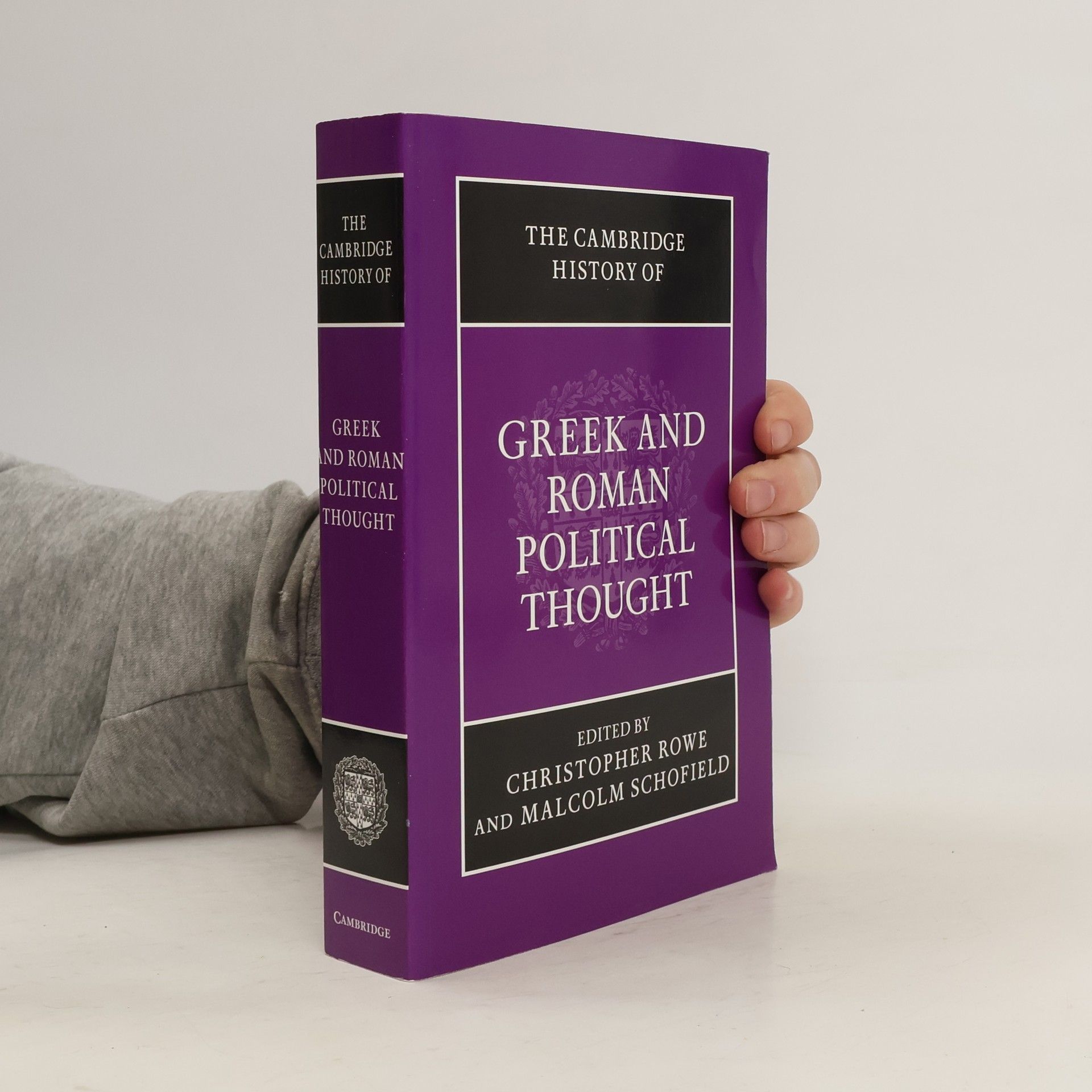Plato is a philosophical writer of unusual and impressive versatility. His dialogues not only engage in argument but also abound in allegory, myth and paradox, with clearly characterised participants set against a particular historical context. This engrossing book shows how Plato's literary qualities are crucial to understanding his philosophy.
Malcolm Schofield Book order (chronological)




Cicero
- 288 pages
- 11 hours of reading
This book offers an innovative account of Cicero's treatment of key political ideas: liberty and equality, government, law, cosmopolitanism and imperialism, republican virtues, and ethical decision-making in politics. Cicero (106-43 BC), a major figure in Roman politics, was the first to articulate a philosophical rationale for republicanism.
The Cambridge History of Greek and Roman Political Thought
- 766 pages
- 27 hours of reading
Beginning with Homer and ending in late antiquity with Christian and pagan reflections on divine and human order, this volume is the first general and comprehensive treatment of Rome ever to be published in English. Its international team of distinguished scholars includes historians of law, politics, culture and religion, as well as philosophers. The volume will long remain an accessible and authoritative guide to Greek and Roman thinking about government and community.
Naturphilosophie und Metaphysik der griechischen Frühzeit. Anhand fünfzehn bekannter Vorsokratiker zeigen die Autoren, wie sich das philosophische Bewusstsein zunächst im östlichen Mittelmeerraum, dann im Westen und schließlich wieder weiter östlich Schritt für Schritt entwickelte. Dabei stützen sie sich auf zahlreiche Quellentexte, von denen über 600 in Griechisch und in deutscher Übersetzung vorgelegt werden.